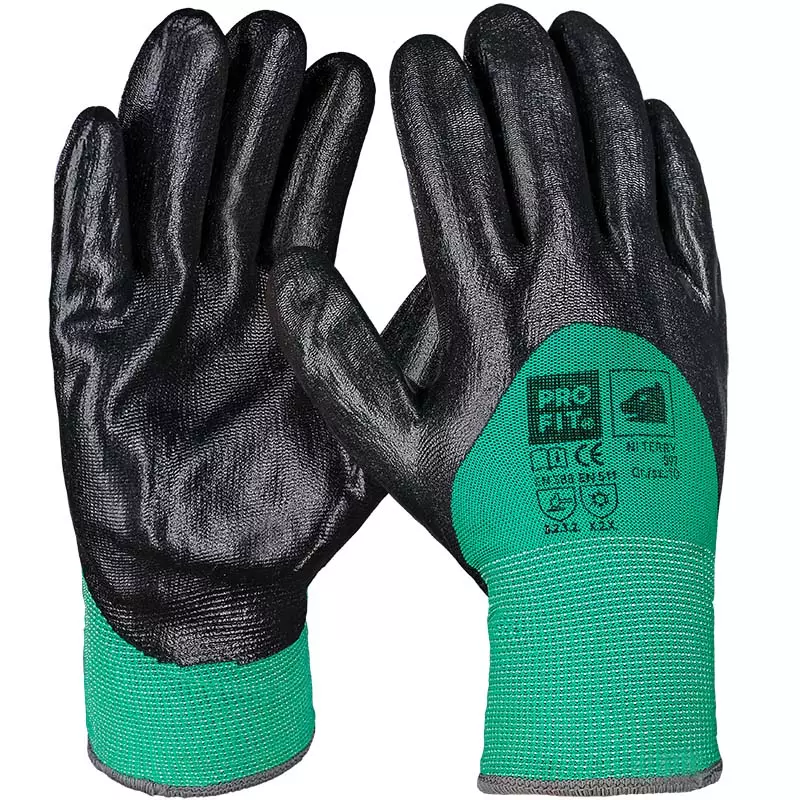
Features You'll Love

Cuff Style · Knit
EN 388 · Tear Resistance Level 3, Puncture Resistance Level 2
EN 511 · Cold Contact Level 2
Determines how the glove secures around the wrist, affecting fit, comfort, and protection coverage at the wrist area.
Offers strong resistance against ripping, making the material durable against snags and tears.
Withstands moderate force from sharp objects like heavy-duty splinters or wires.
This glove provides good insulation when directly handling cold objects for a moderate duration. It's ideal for tasks like working in cold stores or handling chilled or frozen items, offering a solid mid-range of thermal protection.

Glove Features · Seamless Knit
Enjoy superior comfort and dexterity with a smooth, seam-free fit that reduces irritation and enhances your grip.

Coating Material · Nitrile
The substance applied to glove surfaces to enhance grip, durability, and protection, with different materials suited for various work conditions.
PRO FIT
Ni Terry Winter Work Gloves, 12 pairs
Ni Terry Winter Work Gloves, 12 pairs
5 / 5
32,70 €
Price per 12 pairs
2,73 € / pair
Shipping fee is 7,95 € for orders under 1 200,00 €
Features You'll Love

Cuff Style · Knit
EN 388 · Tear Resistance Level 3, Puncture Resistance Level 2
EN 511 · Cold Contact Level 2
Determines how the glove secures around the wrist, affecting fit, comfort, and protection coverage at the wrist area.
Offers strong resistance against ripping, making the material durable against snags and tears.
Withstands moderate force from sharp objects like heavy-duty splinters or wires.
This glove provides good insulation when directly handling cold objects for a moderate duration. It's ideal for tasks like working in cold stores or handling chilled or frozen items, offering a solid mid-range of thermal protection.

Glove Features · Seamless Knit
Enjoy superior comfort and dexterity with a smooth, seam-free fit that reduces irritation and enhances your grip.

Coating Material · Nitrile
The substance applied to glove surfaces to enhance grip, durability, and protection, with different materials suited for various work conditions.
Product description
The NI Terry Winter Glove provides excellent cold protection through its warming acrylic terry loop liner. The nitrile coating on the palm and back of the hand ensures outstanding protection against oils and greases as well as high abrasion resistance. The seamless circular knit construction combined with the elastic knitted cuff ensures optimal wearing comfort and precise fit.
Product Features:
- Nitrile coating on palm and 3/4 of the back of hand
- Acrylic liner in terry loop construction
- Seamless circular knit with knitted cuff
- Fluffy, soft inner lining
- Water-repellent palm
Technical Details:
- Breathable back of hand
- High resistance to oils and greases
- Enhanced abrasion resistance for long durability
- Optimized cold insulation
Standards:
- EN 420:2003 A1:2009
- EN 388:2016 (2.2.3.2.X)
- EN 511:2006 (X.1.X)
- PPE Category II for medium risks